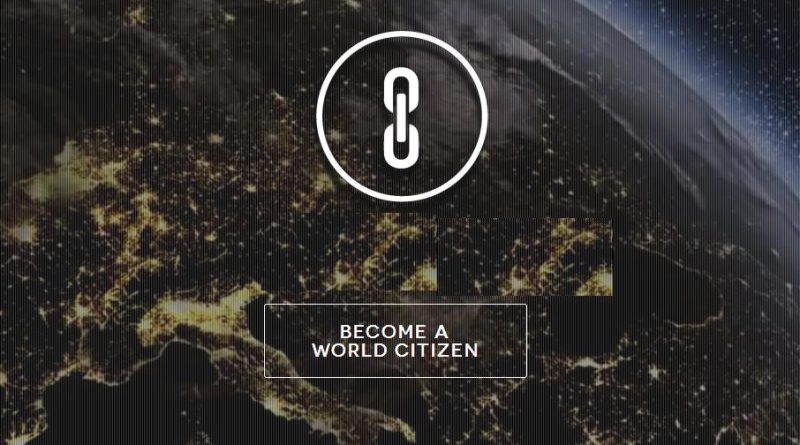List of Blockchain-Based Self Sovereign ID Options
Security, privacy, and the usability of data and information are at the core of concern in a data-driven world. Whether you are talking about the use of that data in financial transactions, marketing data, traffic, health, government, logistics, defense or just to help the normal end-user, the blockchain has a place.
While all (or many) governments have issued forms of physical, online and digital identities, these do not recognize national boundaries. Processing these identities in many cases will require trusted, central authorities and the data is stored centrally, which not only increases the cost of data storage but also exposes that data to everyone else with access to centralized data centers. In these cases, there is less or little control of the data on the part of the end user. The blockchain helps in creating and management of a digital ID that is stored on a decentralized computer system. This can be used for authentication purposes globally, and also used across global platforms to secure personal information.
Before the blockchain, any form of digital identity was always centrally controlled which means that citizens of any given country would need to register and have their data verified, stored and managed by the government or any organization from which they seek to get such services. Once they create accounts with governments and services or companies, it has always been at the discretion of the central authorities and companies to store and control the data, its sharing and usage.
Self sovereign identity is a form of digital identity whose recording, accessibility and verification are initiated by the owner, as well as stored and controlled by the owner, and shared and therefore, dictated by the owner. In other words, it cannot be locked down to a single site or locale and is portable for the user to apply it for different services in different countries and locations without necessarily having it change. Further, users, on their part, can share this data with any companies they wish and on their own terms.
The idea of self sovereign identity was born out of the need to have secure user-control of and on personal data; Decentralization through blockchain turns out to be the best modality for allowing users to store and control their own data while assuring high security against identity threats such as identity theft and privacy of such data and recording of the data immutably on the blockchain. Also regarding the recording of data, self-sovereign identity allows users to not only make claims which include personally identifying information or facts about group membership, but also to defend themselves against financial and other losses and to prevent human rights abuses by the powerful and to support the rights of the individual to be oneself and to freely associate. The case for decentralized self sovereign identity can easily be argued for by pro-blockchain enthusiasts, given the many advantages it offers.
These advantages can then be compared with the problems/challenges that are associated with centralized government/non-government registration services like the loss of data, and manual delays and associated high costs. There also are other problems related to centralized identity and verification as well as centralized personal record keeping and storage on servers like identity theft and massive data breaches during hacks. On top of all of this, the problems related to provisioning of services by governments where identifications and registrations may also be considered. Due to the many reported cases of corruption in these situations including delays, theft, and cheating associated with voting. Given these issues, the use cases for self sovereign identity are endless.
Below are some companies using blockchain platforms and cryptocurrencies for to tackle self-sovereign identity and identity management for both individuals and organizations.
2way.io
2way adds a permissioned layer on top of public blockchains and thus, aims to convert them to private nodes to connect information silos with secure communication channels. This new form of system will be able to be used by any sort of third party, though their identities will need to be verified by the service's blockchain.
Aetna
Aetna is a medical app that provides tools for creating and verifying patient eligibility without a medical ID card. This means that any patient can visit a doctor's office without their member ID number or a copy of their card.
is a medical app that provides tools for creating and verifying patient eligibility without a medical ID card. This means that any patient can visit a doctor's office without their member ID number or a copy of their card.
In addition, a doctor or medical personnel can search for patients on the NaviNet website with the eligibility, benefits inquiry, and transaction search features. As an alternative, these professionals can also search for patients by their date of birth. From this search, medical professionals or patients can then verify coverage areas and see other important information like copays, coinsurance, deductible amounts and mailing addresses for claims.
Any person willing to be an Aetna® member can get the member ID card by submitting an eligibility. The ID card can be accessed from the patient's phone, as well as printed and saved on their computer. With this, it should be noted that this feature needs to be enabled by a NaviNet Security Officer to be available.
With the app on their mobile phones, users can then quickly find a doctor in addition to how much it would cost to treat an illness. Patients can also use the app to manage their benefits and review and pay claims. Plus, they can get advice from medical personnel and come up with medical goals for prevention and treatment.
Soon, the company will finally extend access to more people beyond their members.
Authenteq
 Authenteq utilizes the blockchain for products that can help users verify their identity and create their own sovereign digital IDs based that are stored on the blockchain. The Authenteq platform is user controlled and owned, allowing users to choose to verify their identity or parts of it to/with third parties who are using the platform's claims verification API. This API supports both KYC implementations and identity claim verification. Additionally, it can be used on almost all types of online services including: online marketplaces, online betting portals, adult websites and financial services websites.
Authenteq utilizes the blockchain for products that can help users verify their identity and create their own sovereign digital IDs based that are stored on the blockchain. The Authenteq platform is user controlled and owned, allowing users to choose to verify their identity or parts of it to/with third parties who are using the platform's claims verification API. This API supports both KYC implementations and identity claim verification. Additionally, it can be used on almost all types of online services including: online marketplaces, online betting portals, adult websites and financial services websites.
Their AI-driven automatic identity verification solution and process uses a proprietary passive liveness detection to make sure the person doing the sign up does it in real time. The company then issues an eID for the user which is then stored on the user's mobile phone and the platform's private blockchain simultaneously. The user is then verified with government-grade facial recognition algorithms and his or her photo ID documents are authenticated at the same time.
When implemented on social media and other platforms, Trollteq, which uses Authenteq’s identity management system, requires people to verify that they are human before being signed up.
One of the solution's use cases is preventing online harassment and trolling which may turn to online abuse and harassment. A user can be banned and once banned, cannot return even under a new username.
The verification process involves the user using their smartphone to capture their image, selfie-style, followed by a picture of a valid driver's license or some other form of widely accepted sovereign identity. Authenteq will then verify that these images are the user's and that the submitted forms of ID are legitimate. It will then associate the user's login account with its service without giving away the user's identity. Authenteq can then verify to a third party platform the user is signing up to join, that they are a real, trustable human.
If you're wondering how this works out, it all comes down to how Authenteq stores user data. Authenteq will never store pictures or identification information after the initial verification. Instead, it stores a hashstring on the blockchain that can be used to verify and re-verify identity of the user. Any time a user needs to be verified for any supported service, this is done with this hash string, which is like a secret code that the partner services recognize as a legitimate form of identity.
Bitnation
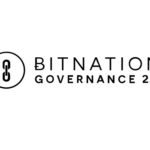 Bitnation, a type of digital nation state which handles all of its record keeping on bitcoin’s blockchain, collaborated with Estonia to create the city's e-residency program. Overall, the program helps citizens regardless of where they live, notarize any document on the blockchain. Bitnation also made the news for its Blockchain Emergency IDs and Bitcoin Visa debit cards being issued to refugees entering Europe from Turkey. Estonia also collaborated with the Guardtime blockchain company to create a blockchain-based management system for patient healthcare records.
Bitnation, a type of digital nation state which handles all of its record keeping on bitcoin’s blockchain, collaborated with Estonia to create the city's e-residency program. Overall, the program helps citizens regardless of where they live, notarize any document on the blockchain. Bitnation also made the news for its Blockchain Emergency IDs and Bitcoin Visa debit cards being issued to refugees entering Europe from Turkey. Estonia also collaborated with the Guardtime blockchain company to create a blockchain-based management system for patient healthcare records.
This system features a blockchain-based form ID and a public notary service. It depends on the Pangea Arbitration Token (XPAT), which is an ERC20 token for the Pangea Jurisdiction and that is used to reward a user's good reputation. By now, the platform now has over 15,000 Bitnation Citizens, over +50 thousand members of its open source community, more than 5,000 contracts notarized, and over 500 registered nations.
Blockverify
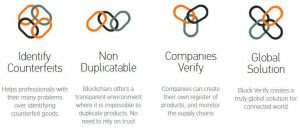 Identity problems do not only exist with identifying persons. Counterfeit products, for instance, are common today and companies lose millions if not billions a year from manufacturers of these illicit replicas.
Identity problems do not only exist with identifying persons. Counterfeit products, for instance, are common today and companies lose millions if not billions a year from manufacturers of these illicit replicas.
Blockverify wants to make it harder or impossible to sell counterfeit products. Companies in any industry can create and register their products with the Blockverify service and then monitor their supply chains on Blockverify's blockchain. In doing so, Blockverify hopes clients will find the service helpful in tracking fraudulent transactions and stolen merchandise.
BlockAuth
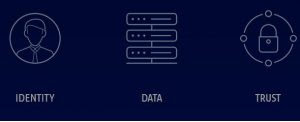 With BlockAuth, users can own and operate a self identity registrar and submit their personal information for verification. These identity registrars, which are like validators on a Proof-of-Stake network in a basic sense, then verify that the person submitting the identity is a real person.
With BlockAuth, users can own and operate a self identity registrar and submit their personal information for verification. These identity registrars, which are like validators on a Proof-of-Stake network in a basic sense, then verify that the person submitting the identity is a real person.
Users can then leverage the technology to access services that accept BlockAuth metadata without having to provide their personal data. Third parties can also use BlockAuth compatible accounts to access services on the platform.
Blockstack
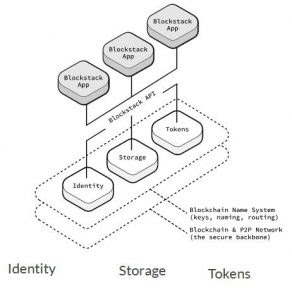 Blockstack provides digital keys that let users own and control their identity. At this time, its services work for Windows, Linux, and macOSs and they can be accessed via a Web app. Users can use then use their new, blockchain-dependent identity to sign into apps or exchange encrypted personal information and data between apps without remote servers or identity providers.
Blockstack provides digital keys that let users own and control their identity. At this time, its services work for Windows, Linux, and macOSs and they can be accessed via a Web app. Users can use then use their new, blockchain-dependent identity to sign into apps or exchange encrypted personal information and data between apps without remote servers or identity providers.
Their data is always stored on remote user devices, with no middlemen and the user can edit their data as wished. For a time-tested example of this in a basic sense, think BitTorrent.
Blockstack also facilitates peer-to-peer payments. Developers can build single-page applications in JavaScript and plug into user-run APIs, then charge for downloads and subscriptions. The platform already has several apps built on top of its blockchain.
Blockstack held an ICO last December last year and raised $50 million. More recently, it's been vetted by the SEC as essentially compliant.
Chainzy
Chainzy is a working proof of concept built on distributed ledger technology for all sorts of parties to add, certify, and exchange KYC and AML documentation. Their identity system is globally available, scalable and subject centered. Overall, it can be utilized by three types of parties including a subject (an individual on whom KYC/AML checks need to be conducted), a certifier (the organization certifying the subject), and an inquisitor (the organization conducting KYC/AML) checks on the subject.
It helps people organize documents logically and set permissions. Subjects can set time and use restrictions on inquisitors for when they're allowed access to their documents. Chainzy's main platform called IDChainZ 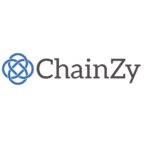 uses two distinct mutual distributed ledgers to bring this and more about. A content ledger holding all user documents is also individually encrypted while a transaction ledger holds the documents' keys in a separate location on a series of connected and unconnected "document rings.
uses two distinct mutual distributed ledgers to bring this and more about. A content ledger holding all user documents is also individually encrypted while a transaction ledger holds the documents' keys in a separate location on a series of connected and unconnected "document rings.
The rings have a sort of hierarchy where master rings are aware of all their sub-rings, with parent rings being able to access and control sub-rings. At any time, within this system, a subject can submit documents for verification and certification by the certifier/verifier. After verification, the certifier can create a master document ring and a subject's identity sub-ring, while the inquisitor's sub-ring can be created, subject to limiting conditions. The inquisitors can then request certified documents from subjects and the subjects can submit documents that have been issued by the verifier/certifier which are verifiable by any inquisitor.
As of now, Chainzy has several solutions including GeoChainZ for __cpLocation time stamping; IDChainZ, which was detailed above and is an identity system for self-sovereign identity documentation (anti-money laundering, know-your-customer requirements), applications, and exchanging certifications or health information. In addition to all of this, Chainzy has also already launched a service called SmartChainZ for creating flexible data markets for information; and TimeChainZ, which may be used for time stamping, data logging, event recording, and regulatory reporting.
Civic
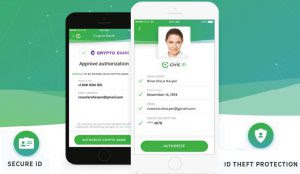 Civic, another digital identity management platform, works by collecting various user identifying information and passing them through a government agency or third party identity verification service depending on the country where the user is located or hails from.
Civic, another digital identity management platform, works by collecting various user identifying information and passing them through a government agency or third party identity verification service depending on the country where the user is located or hails from.
The system then collects a cryptographic hash and stores it on the blockchain while erasing all other personal data from its servers.
Users can utilize the hashed information to authenticate themselves in order to use another supported, third-party service. In theory, there, these partner services will no longer need to store user information and there will be no more risk of users' identities being hacked and traded on the dark web.
This is because once the hashed data is stored, even hackers or intruders cannot get to it unless they can decrypt it, which is difficult at best.
With regards to Civic's token, trustworthy Identity verification (IDV) providers such as banks, utility companies and many others can be incentivized to verify attributes of the identity of an individual or business on Civic's blockchain.
Validators will receive CVC tokens when other participants utilize their attestations(verifications) to prove identities. In other words, with Civic, you cash in on your data in a more secure and private ecosystem than ever before.
Validators can also use smart contracts to price their verification services and offer them to other participants in the network. Overall, Civic hopes this will result in a global, borderless identity verification ecosystem.
The company raised $33 million in digital currency tokens in a June ICO that ended before its scheduled date.
Danube
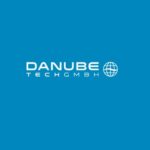 Danube Tech specializes in technologies related to digital identity and personal data such as personal agents, semantic graphs, and decentralized identity on the blockchain. With their tools, customers are able to create, manage, use, destroy, secure and share their online identities on their own terms, without delegating the power to intermediaries to do this.
Danube Tech specializes in technologies related to digital identity and personal data such as personal agents, semantic graphs, and decentralized identity on the blockchain. With their tools, customers are able to create, manage, use, destroy, secure and share their online identities on their own terms, without delegating the power to intermediaries to do this.
In particular, the company develops decentralized Identifiers, which are a type of identifier for verifiable, decentralized digital identity. The controller of the DID can prove control of the DID and the identity can be implemented independent of any centralized registry, identity provider, or certificate authority. The controller is able to control the DID through the methods prescribed on the DID Document, and which could include cryptographic material, verification methods, and/or service endpoints.
The DID is a URL through which the controller can relate to the DIDs.
XDI Identity Agents are another of their products that enable the creation of personal cloud storage systems, identity containers, agents, and similar concepts. The technology behind them is based on a powerful identity graph that connects individuals, businesses, and relationships.
DIF (Decentralized Identity Foundation)
 DIF is an engineering organization that develops open specifications and standards for protocols, as well as components and data formats, all of which relate to decentralized sovereign identity for people, organizations, apps and devices. Because they're involved in every aspect of such an ecosystem, this ensures the interoperability of their services between ecosystems and participants when their protocols and standards are implemented.
DIF is an engineering organization that develops open specifications and standards for protocols, as well as components and data formats, all of which relate to decentralized sovereign identity for people, organizations, apps and devices. Because they're involved in every aspect of such an ecosystem, this ensures the interoperability of their services between ecosystems and participants when their protocols and standards are implemented.
To date, everything that DIF has developed has been developed by working groups. Members of the organization also develop open source reference implementations of the technical components and protocols they create. Basically, the protocols allow for development of authentication specs, standards and libraries used in authenticating DIDs across different exchanges and use cases, so that the platform's IDs are provider-agnostic (can work with all providers), are controlled by the user, allow data ownership, and allow the sharing of data in a manner that the user wants. These standards, protocols and specifications can then be implemented in third-party apps and services as well.
At this time, some of DIF's partners include Uport, Blockstack, Sovrin, Microsoft, Hyperledger, Civic, Accenture, RSA, Danube, Evernym, and Validate ID, among others.
EverID
 EverID is a decentralized platform for a new kind of economy that incorporates a scalable payment solution with a multi-currency wallet and digital and biometric identity services. At its core, its a transaction protocol that has built-in identity services and a sovereign identity infrastructure. With these services, EverID hopes to unlock the potential of use of the latter in banks, governments, NGOs, hospitals, businesses and other areas.
EverID is a decentralized platform for a new kind of economy that incorporates a scalable payment solution with a multi-currency wallet and digital and biometric identity services. At its core, its a transaction protocol that has built-in identity services and a sovereign identity infrastructure. With these services, EverID hopes to unlock the potential of use of the latter in banks, governments, NGOs, hospitals, businesses and other areas.
On a deeper level, EverID is organized into four areas to help safeguard the data that is under their control. The first is the Identity Network (IN), a non-profit, stewarded identity and value transfer network. The second component is their decentralized identity platform which is connected to the EverID DApp that gives users the ability to record, update, store and transfer value across the platform. Peer-to-peer agents can provide access to this via biometric verification.
With the EverID platform, users are also armed with a wallet and can use its transaction system to exchange value inside and outside of the EverID ecosystem. It is not required for users to own a smart device to be included, and will users control their own identity and information from the time they sign up, in perpetuity.
The platform also has a native token known as ID, which is used to access the Identity Network and is involved in every exchange of value in the EverID economy. Users are not charged to receive payments to the wallets, but will require 1-100 IDs in their wallet in order to send transactions at all. Organizations can also stake higher amounts of the token to receive tiered levels of access and additional IDs for market-specific applications.
Evernym
 Evernym is a user verification and user on-boarding solution for businesses and companies. With it, anyone will be able to register and login with digital, blockchain-based IDs and share their information wherever and whenever they need to. Evernym's platform also helps companies integrate users into their business processes using secure, portable and private digital credentials that can be verified instantly.
Evernym is a user verification and user on-boarding solution for businesses and companies. With it, anyone will be able to register and login with digital, blockchain-based IDs and share their information wherever and whenever they need to. Evernym's platform also helps companies integrate users into their business processes using secure, portable and private digital credentials that can be verified instantly.
With Evernym's Connect.Me solution, companies can receive, store, and share digital credentials as well as personal data in a trusted, controlled way using Evernym's free mobile wallet application. It'a available as a standalone app that can be white-labeled and integrated seamlessly into a company's existing offering.
With another one of their solutions called Verity: Auth, companies can give their users permission to easily authenticate and prove their entitlements regardless of their geography or context with the Evernym's single sign-on solution. With this solution, users also get to decide what to and who to or not share with regarding their personal data. Verity is a solution for companies to let people issue, receive and verify their user data easily, inexpensively and securely with Evernym’s enterprise credential exchange platform.
As a result, Everynym claims that companies get to have a faster, less expensive on-boarding process and a higher overall conversion rate. On the other hand, customers will enjoy a higher propensity to return and interact more and for longer when they do. With their solutions, there is no vendor lock-in such that digital identities are interoperable and portable, forever. Besides, their solutions are open-source and the team works together with groups to develop decentralized identity solutions together.
These solutions can help combat fraud, create compelling customer experiences, and minimize data footprints.
Gov.UK Verify
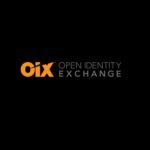 Gov.UK Verify is an initiative founded by the Open Identity Exchange to facilitate identity assurance, which is maintained by the Government Digital Service (GDS) and supported by the OIX UK and the Cabinet Office. Overall, it aims to help prove the identity of people who are accessing government services online in a more secure fashion. It uses certified agent companies to register citizens and verify their identities. During the verification process, user able to choose from a long list of possible verification providers that have partnered with the Gov.UK Verify service.
Gov.UK Verify is an initiative founded by the Open Identity Exchange to facilitate identity assurance, which is maintained by the Government Digital Service (GDS) and supported by the OIX UK and the Cabinet Office. Overall, it aims to help prove the identity of people who are accessing government services online in a more secure fashion. It uses certified agent companies to register citizens and verify their identities. During the verification process, user able to choose from a long list of possible verification providers that have partnered with the Gov.UK Verify service.
One they are certified and verified, citizens are able to utilize their identities for accessing different government services without needing to start verification all over again. However, organizations joining Open Identity Exchange (OIX) have to pay fees. The identities are verified according to a set of standards developed by the government but the identities are stored in a distributed network. While some of the factors that define a self sovereign identity, this may not act as a true self-sovereign identity due to some other factors not met.
Hyperledger
 Hyperledger's Indy project is a distributed ledger that is purpose-built to facilitate decentralized identity. With it, users can store their personal identity in a __cpLocation where only the owner can access, edit or delete them. Once you are able to provide the __cpLocation of the identities, the Indy platform will list their __cpLocation with a globally identifiable name. If someone wants to read your identity data, the Indy platform points out the __cpLocation of the identity.
Hyperledger's Indy project is a distributed ledger that is purpose-built to facilitate decentralized identity. With it, users can store their personal identity in a __cpLocation where only the owner can access, edit or delete them. Once you are able to provide the __cpLocation of the identities, the Indy platform will list their __cpLocation with a globally identifiable name. If someone wants to read your identity data, the Indy platform points out the __cpLocation of the identity.
With Indy, it is possible for the user to assign a unique, memorable name to their identity, The identity name is converted into a unique identity key called DID (decentralized identifier). The key value pair called DID record, is a value associated with the key called DDO (DID descriptor objects). The DID records, each of which identifies the owner of the identity, are secured cryptographically by private keys of the identity owner or the guardian.
The DID record, each of which identifies the owner of the identity, is secured cryptographically by private keys of the identity owner or the guardian. For each private key is a corresponding public key published in the DDO and the DDO may also contain a set of service endpoints for interacting with the owner of the identity.
The platform can receive claims to verify regarding the pairwise-unique DIDs registered on the ledger, and it can be used to verify identities by companies and parties. The claims are submitted on the platform by the user about who they are, signed with the issuer's private key, and validated by the issuer's public key from their DDO. These claims are validated by a validator on the system and the user can use them as verifiable claims to get service with other service providers who can act as verifier to verify if these claims are true.
A good example is a doctor (user) being supplied with a verifiable claim about who they are by a Doctor's Licensing Authority acting as an identity validator and who has created a claims schema or using an existing one, has created public keys, and creates a revocation registry entry on the ledger. The doctor then submits the claim as verifiable claims to a hospital (verifier) looking for employment and the hospital then uses the platform to validate those claims by the doctor that the doctor is verified and licensed with the authority.
These identities are interoperable with other platform and interchangeable between any DLT including blockchain.
Idemia
 Idemia provides what is called an augmented identity, which is a digital identity that ensures the privacy and trust of its users while guaranteeing secure, authenticated and verifiable transactions. Idemia "enhanced and adaptable and secures the identity of persons to make the world a better place.
Idemia provides what is called an augmented identity, which is a digital identity that ensures the privacy and trust of its users while guaranteeing secure, authenticated and verifiable transactions. Idemia "enhanced and adaptable and secures the identity of persons to make the world a better place.
Their application makes use of biometric data to secure personal identity, meaning a user's identity can be verified with a simple glance or the tap of a finger such that it cannot be stolen, imitated, jeopardized or corrupted. Plus the owner is in direct control of their identity. With it, customers can travel on passports, pay with smartphones and identify themselves securely and effortlessly.
Biometrics, which means using physical and behavioral characteristics to register, recognize, authentic, and identify persons, requires that the characteristics used so be universal such that they can be used by any person, unique such that they can be used to unequivocally distinguish between different persons, invariable in that they can be used throughout a person's lifetime, recordable in that they can be collected and stored, and measurable in that they can enable comparisons.
Biometry enables the verifcation of a person's rights (access, services etc) while guaranteeing a person's anonymity. They do not always require recording data in a biometric database. It may be stored in a chip embedded in an electronic ID card or passport, smartphone etc. The data processed during an authentication are compared with the physical data of the card or passport bearer. The matching operation can be done on the chip itself by use of the Match-On-Card technology.
Bometrics can be applied in civil identity and digital security, biometrics and public security. In civil identity, it can be used to establish and protect a person's identity, while in digital security it can be used to guarantee people's identities and making online transactions safe, and in public security it can be used in investigations and ensuring security of public areas and critical infrastructures.
Idemia combines a variety of components including terminals, sensors, software, mobile applications and automated control gates. These are designed to collect, stock and process (by comparing data) biometric information and produce a specific result or authorize a specific action.
Idemia's solutions include a fingerprint recognition service, a multimodal recognition service that combines fingerprints and vein patterns, a facial recognition service, and iris recognition technologies. Among their many use case specific innovations are an electronic ID or IED that brings state-issued ID to the online world, a mobile driver's license that secures and digitizes driver's licenses, and a smart connect that allows for the managing of eSIM-device activation flow in real-time.
Their M-trust solution aims to ensure a safer connection to the IoT than ever before. Other innovations include the Morphowave Compact, Mobile Driver's License that helps to digitize and secure the driver's license; the Smart Connect - Subscription Management allows the managing of eSIM-device profile lifecycle; Fusion MBIS biometric identification solution; Smart Services to streamline issuance and card personalization in physical and digital worlds; Vide Investigations; Digital Banking; and Pear Connect. The Morpho Wave captures and matches fingerprints with a wave of the hand.
The Idemia-3d-face helps integrate biometric security into appliances, through the integration of fingerprints, iris and face recognition technologies. For instance, their 3D face calculates the precise 3D geometry of the face captured by a dedicated 3D sensor and the captures features can be matched with ones stored on a device for instance verification for security purposes. It works on all new Android phones and the Reference Design Kit will soon be available for easy deployment on mobile devices. It is now integrated with the Samsung SDS FIDO solution, which was a fingerprint solution.
Their electronic ID or eID can be used online to apply for benefits, open accounts, protect sensitive transactions, secure tax refunds, transfer a vehicle title, and more. Users are able to register for, and activate their eID with three simple steps and they can also approve identity related requests for their transactions, directly from their smartphones. They can also securely share the specific identity details required for each transaction. It eliminates the need to remember usernames, passwords or other knowledge-based information. M-Trust also aims to prevent the cloning of apps by way of authentication for each device, and therefore protecting confidentiality of data over IoT connected devices.
The Mbis solution is targeted to investigators and is packed with a biometric search engine on which they can search for suspects and criminals identity. The back-end platforms provide processing and archive storage while they are complemented by front-end workstations that can manage fingerprint, palm and facial images, and display powerful verification and comparison tools.
IDKeep
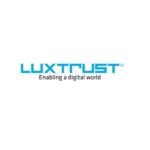 Cambridge Blockchain Inc. created IDKEEP, which is a European identity platform targeted towards solving problems with personal data as experienced by many digital service providers such as banks, financial services, and insurance and healthcare providers. With it, users get to control their data and dictate on who they can share with such data and how it is used with online services. It can help digital organizations to manage their consent effectively according to GDPR rules and to effectively manage validated user's data enabling trusted transactions online. IDKeep opens a marketplace where data validators can meet customers. It was developed by the LuxTrust in Luxembourg to unlock business and markets related to data and identities.
Cambridge Blockchain Inc. created IDKEEP, which is a European identity platform targeted towards solving problems with personal data as experienced by many digital service providers such as banks, financial services, and insurance and healthcare providers. With it, users get to control their data and dictate on who they can share with such data and how it is used with online services. It can help digital organizations to manage their consent effectively according to GDPR rules and to effectively manage validated user's data enabling trusted transactions online. IDKeep opens a marketplace where data validators can meet customers. It was developed by the LuxTrust in Luxembourg to unlock business and markets related to data and identities.
With IDKeep, LuxTrust combines its role of IDAS Qualified Trust Services Provider, with a GDPR trusted third-party role. IDKeep enables corporate and personal data exchange and re-usability, enhancing trust and brand loyalty. It introduces a simple, yet powerful policy engine to allow companies generate, manage and track user's consent to specific data at scale. Users, after on-boarding can easily change, keep track and control their personal data for many services online in one easy to use interface. It first defines what data should be collected, under which policies, timeframe and the validation models to use, and then sends it to its customers, who checks and fills any missing information. The company (companies, service providers, institutions) will gain access to the data only after the customer gives his consent and only for the defined of the data service.
Not only does it guarantee users ownership and control of their data and information, but also the data transactions are done in a transparent manner with each party (the company and customer) knowing which type of data is shared and for what purpose. It also enhances re-usability of data. The customer can share it with other agreed service providers without needing to repeat validation process.
IRMA
 Operated by a non-profit organization, IRMA user identities are modeled in the form of attributes, of which the user has full control. This means they will always know which data exists concerning her and a log file allows the user to track who accessed which attributes. The user must give consent for each disclosure of attributes. The system makes sure that only the required attributes are disclosed. A set of attributes can be combined into zero-knowledge proof. IRMA also supports signing based on a certain attributes i.e. for instance signing something as a "registered doctor" anonymously.
Operated by a non-profit organization, IRMA user identities are modeled in the form of attributes, of which the user has full control. This means they will always know which data exists concerning her and a log file allows the user to track who accessed which attributes. The user must give consent for each disclosure of attributes. The system makes sure that only the required attributes are disclosed. A set of attributes can be combined into zero-knowledge proof. IRMA also supports signing based on a certain attributes i.e. for instance signing something as a "registered doctor" anonymously.
Identities last forever but attributes can expire after a certain time. Besides all the user data is saved locally on smartphones but will be lost when the phone is damaged or wiped. Also, it is difficult to recover the anonymity is impossible to retrieve by means of the user's identifier.
IRMA uses various kinds of attributes and covers a range of use cases and therefore interoperable.
Key tokens
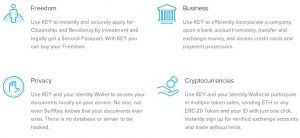 SelfKey ICO started on January 14 and was scheduled to end on January 31 but its tokens sold out in 11 minutes, resulting in a $21,780,000 round.
SelfKey ICO started on January 14 and was scheduled to end on January 31 but its tokens sold out in 11 minutes, resulting in a $21,780,000 round.
Key tokens will be used to access the network, verify and notarize ID documents and purchase services such as a tax residency, a business bank account, and an exchange account.
Basically, SelfKey will be a blockchain-based digital identity system on top of the Ethereum blockchain, but with an integrated financial services marketplace.
It will provide its users with instant access to its Citizen by Investment service, incorporation services, financial services, token sales, coin exchanges and other services in a fully secure fashion.
KYC-Chain and SelfKey
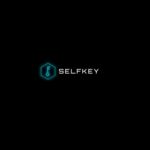 KYC-Chain is a solution for the corporate world to identify and verify identity documents from over 240 countries and territories for purposes of compliance with KYC and AML checks. The solution allows companies to screen clients for associated criminal or prohibited activities in real-time with the platform's lobal sanctions and watchlists, politically exposed persons and adverse media databases.
KYC-Chain is a solution for the corporate world to identify and verify identity documents from over 240 countries and territories for purposes of compliance with KYC and AML checks. The solution allows companies to screen clients for associated criminal or prohibited activities in real-time with the platform's lobal sanctions and watchlists, politically exposed persons and adverse media databases.
It also lets its clients to screen crypto wallets for AML, and to analyze the historical transaction of a crypto wallet checking it against known risk indicators.
Together with SelfKey Network, its sister company, KYC-Chain allows users to store their KYC details on-chain. SelfKey is a wallet that allows users to securely store and manage their identity documents, access incorporation marketplace, and manage the identity from one place. Individuals can not only store the ID but also ETH and ERC-20 Assets in a noncustodial, open source wallet. The wallet allows individuals to maintain full control of the ID and digital assets.
Self Key allows clients to start and open a new business and a bank account or get documents notarized through the SelfKey Marketplace, which provides a variety of other services and is powered by the Key Token.
LifeID Foundation
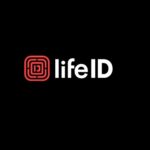 LifeID is a platform that can be integrated with apps so that these apps will give users power over how their personal identity data is used online and in real world. Their open, public identity protocol for Web 2.0 and blockchain ecosystems provides users with convenient, secure, and private transactions.
LifeID is a platform that can be integrated with apps so that these apps will give users power over how their personal identity data is used online and in real world. Their open, public identity protocol for Web 2.0 and blockchain ecosystems provides users with convenient, secure, and private transactions.
LifeID lets users to cordinate the use of their identity with any organization in the world. In collaboration with Rchain, they are implementing a unique naming and identity infrastructure. The decentralized, self sovereign identity (SSI) solution is based on W3C standards and lets users to control and manage the identifiers to the eID unlike with centralized systems where the IDs are controlled by the centralized relying parties. The later not only control credentials to their subjects and aggregate and correlate data, they also leak data into their ecosystem and beyond.
When the identity layer is overlayed on RChain, it provides a scalable decentralized and trusted identity infrastructure, including lookup, DID resolution to support the wider partner and application ecosystem globally.
Organizations can use LifeID to issue digital credentials for their membership (customers, employees, partners or associates). These cannot be forged since they are signed by the organization's private key. Members can use the app to authenticate by scanning barcodes. It is working for integration with other blockchains/crypto platforms and they also work with other DID solution providers such as Evernym/Sovrin Foundation and UPort to extend the scope of the identity standards into specific use cases and attribute sets if industry sectors such as supply chain, health, and transport.
Mooti
Mooti is a digital identity service that provides self-identity platforms across four primary market verticals including: financial services, healthcare technology, sports and entertainment, and industrial manufacturing. Their products include MootiEdge, which allows users to create, verify, authenticate (include biometric) and authorize a digital identity for organization's users and MootiShare, which, in general, aims to streamline and secure the interactions between companies and all of their stakeholders.
These solutions include exchange wraps wallets, encrypted communication, payment solutions, asset custody etc. The other product is called MootiPass, which provides digital solutions that allow for new market value interactions between people, companies and environments in the self-sovereign world.
The identity is privacy-preserving and secured by cryptography. Organizations can utilize the solutions to improve comprise through GDPR, KYC/AML, OFAC, and SCIF procedures seamlessly.
Netki
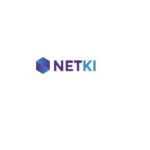 Even digital identity will play a key role in the future of blockchains used by financial institutions because while they do not inherently contain ability to comply with Know Your Customer and Anti-Money Laundering requirements.
Even digital identity will play a key role in the future of blockchains used by financial institutions because while they do not inherently contain ability to comply with Know Your Customer and Anti-Money Laundering requirements.
IBM is running a project to help accelerate growth of networks on Hyperledger Fabric. With Nekti, users not only create digital identity but they can carry that digital identity seamlessly across multiple blockchain to share their identity with whomever they choose.
This improves user privacy compared to common practices today.
And on May last year, the company launched the highly-anticipated Digital ID smartphone app to help people control their identities better. In other words, it gives everyone who needs a government-approved identification a feature-rich, blockchain-based, free solution that can be used anywhere. It makes use of the Hyperledger blockchain.
Netki's Digital ID addresses issues of Anti-Money Laundering (AML) and Know Your Customer (KYC).
Netki uses ID validation technology based on biometrics and Pixel Perfect analysis that can be used by companies to do automatic on-boarding of customers with KYC, AML, and HIPAA compliance, as well as compliance with other standards. It can be integrated into other platforms via an AOI and an SDK for mobile. Furthermore, it can also be used by financial institutions, healthcare providers and large enterprises that use blockchain to invent new products, open new markets or transform their customer experience.
The platform's ID is reusable and sharable. Individuals are able to capture their identity records via smartphones as well as other automated and manual verification methods such as database checks, machine learning, and biometric analysis. When a digital ID is created and validated, it can easily be shared via digital identity certificates that are legal.
The company has already partnered with IBM, PwC Australia, and the Hyperledger Project, among others in order to drive mainstream adoption of their service.
OneID
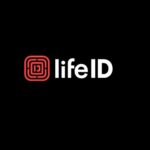 OneID provides self sovereign identities that are solely owned and controlled by their owners. These owners also have the option to seamlessly manage their IDs, which includes using them in total or in parts at his/her own discretion with minimum effort. The platform is based on post-quantum cryptography design principles and adheres to the W3C standards. Its universal ID format is encrypted on a decentralized ledger and theoretically built to totally remove the possibility of any correlation and side channel attacks.
OneID provides self sovereign identities that are solely owned and controlled by their owners. These owners also have the option to seamlessly manage their IDs, which includes using them in total or in parts at his/her own discretion with minimum effort. The platform is based on post-quantum cryptography design principles and adheres to the W3C standards. Its universal ID format is encrypted on a decentralized ledger and theoretically built to totally remove the possibility of any correlation and side channel attacks.
OneID stores the encrypted data pertaining to passports, driving license issuing authorities, universities that issue graduation certificates, and ownership records from government departments such as land titles.
Overall, lifeID's digital ID is based on a variety of attributes such as name, age, address, registration number, and a photo. ID owners can submit claims about themselves to ID validators which are entities or agencies or services that act as digital notaries. Once an ID is submitted, it can be validated and used by the owner in any way they wish. Simultaneously, ID verifiers who wish to provide the ID owner with any of their services can verify that the claims raised by ID owners about themselves are valid.
This form of identification thus helps the owner to prove their identity without revealing any side-information, instantly in a non-repudiating way. Payments, KYC/AML due diligence, banking, p2p lending, and marketplaces are some of the use cases of this platform.
OpenID
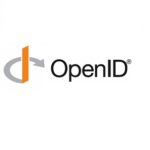 OpenID lets its users submit attributes associated with their identities to its service, then determine who they can disclose these attributes to. At any time, users can access all of their attributes, even when they are stored in a decentralized network across data suppliers who are partners of the network. The user is also always able to approve any sharing of his or her data at any time, before it occurs.
OpenID lets its users submit attributes associated with their identities to its service, then determine who they can disclose these attributes to. At any time, users can access all of their attributes, even when they are stored in a decentralized network across data suppliers who are partners of the network. The user is also always able to approve any sharing of his or her data at any time, before it occurs.
With all of this, it should be noted that although users can always access all of their attributes, this depends on the decisions made by the data providers. OpenID does not actually handle the creation, showing, proving, renewing, deleting and revoking of attributes. Hence, beyond the storage of user identities, this service isn't really decentralized.
Pangea Arbitration Token (PAT)
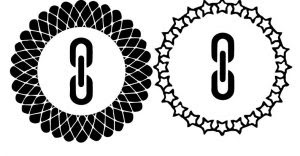 PAT is a ERC20 compliant in-app token for the Pangea Jurisdiction, the virtual world that is a creation of Bitnation. It is issued when users (citizens) of Pangea Jurisdiction create a contract or complete a contract or resolve disputes related to an existing contract. It can be purchased or exchanged in various crypto exchanges.
PAT is a ERC20 compliant in-app token for the Pangea Jurisdiction, the virtual world that is a creation of Bitnation. It is issued when users (citizens) of Pangea Jurisdiction create a contract or complete a contract or resolve disputes related to an existing contract. It can be purchased or exchanged in various crypto exchanges.
It will work as a reward token for those accumulating proof-of-reputation tokens. Bitnation, which was formed in 2015, will run the ICO on February 28 to March 2018. Pangea allows citizens to conduct peer-to-peer arbitration and create nations. It will integrate with other chains such as Bitcoin, EOS and Tezos in future.
In other words, this is the currency for the first blockchain-based virtual nation Bitnation. Bitnation is a nation bordered only by source codes, complete with a constitution. With it, you can notarize their marriages, birth certificates, business contracts and more. It has many frontiers including first workable DIY land title recorded on the blockchain in Ghana, first marriage registered on blockchain, and first blockchain-based passport.
The idea of its World Citizenship Passport, for instance, would be to have no central authority issuing passports in the same way Bitcoin has no central bank. It would secure personal data, facilitate its use globally and eliminate possibility of fake identities.
It partnered with Estonia government last year to offer a public notary service to Estonian e-residents. Bitcoin, EOS and Tezos will also integrate into the platform. Anyone can register on Bitnation network.
Shocard
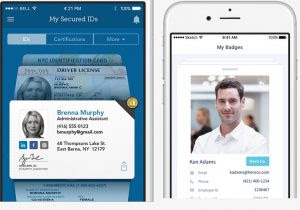 Shocard.com has created the ShoBadge platform that offer a proprietary, blockchain-based digital identity verification solution.
Shocard.com has created the ShoBadge platform that offer a proprietary, blockchain-based digital identity verification solution.
Users such as banks and businesses can can use the platform to extend security and privacy to their systems and better secure user data when required.
Individual users can also use the system to share any personally identifiable information (PII) with any organization they wish. It secures data, which is also independently verified with one way digital signatures of hashes of the data on the blockchain.
Thoreon
Thoreon is giving people sovereign digital identities they can really control. In doing so, it's already managed to solve "the password problem" where for instance, almost 26% of call center calls are from people trying to reset their passwords, over 60% of users type their password wrong the first time, and around 53% of users who cannot login try to reset their passwords with email.
UniquID
UniquID allows the identification and control of IoT devices by offering Identity as a Service. The company serves enterprises that need to provision, connect and control critical assets including sensors, actuators, appliances. Each of the UniqueID is registered on the Litecoin blockchain and leverages integrity and transparency. Hence, creating and managing identities works in the same manner as broadcasting a crypto transaction.
UniqueID identities don't need central certification authorities to be issued and there is no need to sign and dispatch wild card certificates to partners and intermediaries.
For instance, customers can deploy their UniqueIDs for Amazon AWS and each device will have a unique ID that can make user control easier and quicker, especially in use cases where multiple interconnected devices use the same unique ID. For instance, with an onboarding software management system, a device will send its unique identifier to the UniquID software, and this software is used to enroll the device into the appropriate resources, which occurs automatically without the need for any sort of manual intervention.
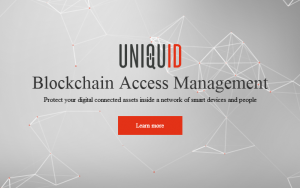 UniquID saves all the identifiable information related to user devices and user-held digital assets in a blockchain-based digital vault to secure them. Related to this, each of those devices are independent and there are no intermediaries.
UniquID saves all the identifiable information related to user devices and user-held digital assets in a blockchain-based digital vault to secure them. Related to this, each of those devices are independent and there are no intermediaries.
The service's wallet provides secure identity management, integrated with fingerprint and other biometry on personal devices. It can be deployed on custom hardware, servers, personal computers or even on smart phones and tablets.
It is used in the world of IoT where smart devices communicate and cooperate without boundaries in a secure manner to keep data away from remote and vulnerable concentration points.
As of now, the platform is in beta testing.
uPort
 uPort was developed by ConsenSys and is a self-sovereign identity system based on the Ethereum blockchain. It contains smart contracts, developer libraries, and a mobile app. Users can create and store personal information, including their identities through smart contracts, whose keys are held in the service's mobile app.
uPort was developed by ConsenSys and is a self-sovereign identity system based on the Ethereum blockchain. It contains smart contracts, developer libraries, and a mobile app. Users can create and store personal information, including their identities through smart contracts, whose keys are held in the service's mobile app.
Developer libraries allow third-party developers to integrate support for uPort into their apps, which may facilitate the smooth growth of the service as time goes on.
uPort-based digital identities can be used to sign transactions.
The group recently collaborated with the city of Zug to create the world's first live implementation of a self-sovereign government issued identity on the Ethereum blockchain. Because of this, the city's citizens are already verifying their identity on the platform and cryptocurrency-related activity in Zug has grown considerably.
Once a user creates his or her identity with uPort, they register on the City of Zug website and their data is verified. The digital identity is used by the user to access online services of the City of Zug seamlessly without the need for passwords or logins. Perhaps, over time, services like uPort will truly facilitate a secure, yet borderless existence for all of us.
Verses One
Verses One lets any person and any device create and own their online decentralized identities and control who they want to share them with. It allows allows for the verification of these credentials on its blockchain's second layer, which enables people to store and control their digital credentials such as passports, drivers licenses, educational qualifications, professional licenses, and other third-party issued credentials without worrying about any of these being hacked and stolen, since all of their info is hashed.
The service's third layer acts as a decentralized identity management solution that enables users to define and control when, under what restrictions, and with whom their identity will be shared via software applications and digital wallets. These IDs can also be bound to other data and presented to prospective employers, as well as used in situations related to a variety of industries including the education, healthcare, government, trade, finance, and humanitarian spaces.
Overall, the Veres One platform depends on the concentrated effort of a number of different roles. The Board of Governors are responsible for all governance-related activities such as carrying out the Veres One Project's mission and managing, collecting, and distributing funds according to its funding model. Maintainers are responsible for maintaining the Veres One software. All sorts of users use the network to create and update decentralized identifiers and associated metadata, while accelerators increase the speed at which entities can create and update identifiers on the network.
XID
XID is a token run by Sphre. In connection with XID's AIR system, users can register, store and manage their identity-related data on the blockchain. At all times, users will be able to control who accesses this data. With AIR, users can also charge companies in XID tokens or for access to their data.
The AIR platform is comprised of Chain code or a "smart contract" that allows users to store their identities securely on the blockchain, as well as an Application Programming Interface (API) that allows third-party organizations and enterprises to integrate support for AIR in both their existing systems and their new systems.
The project raised $3.7 million in a June ICO from 575 participants in less than nine days.

